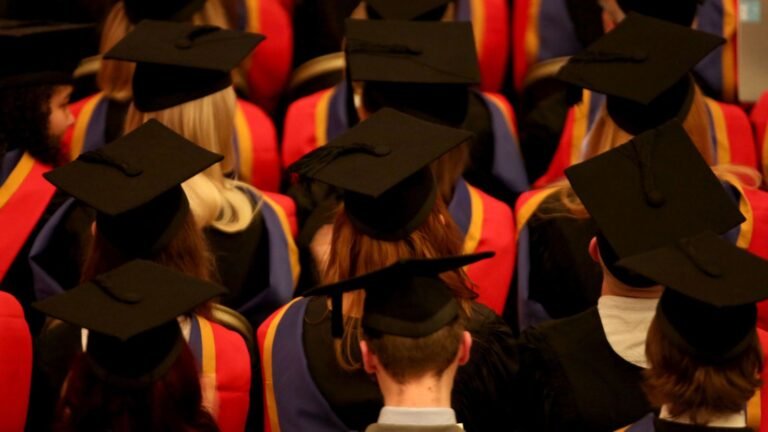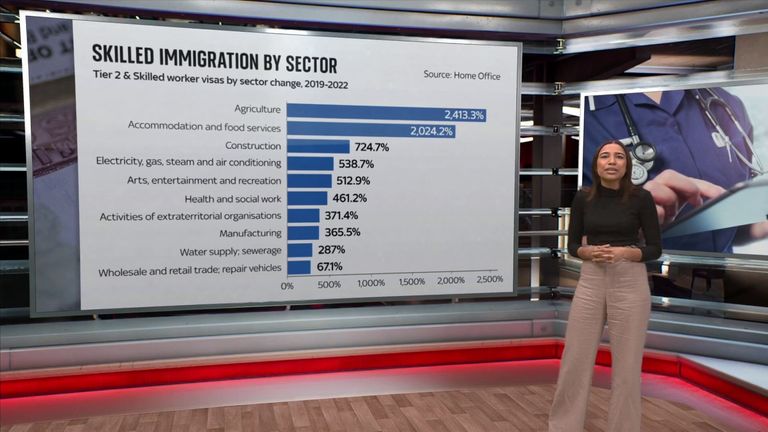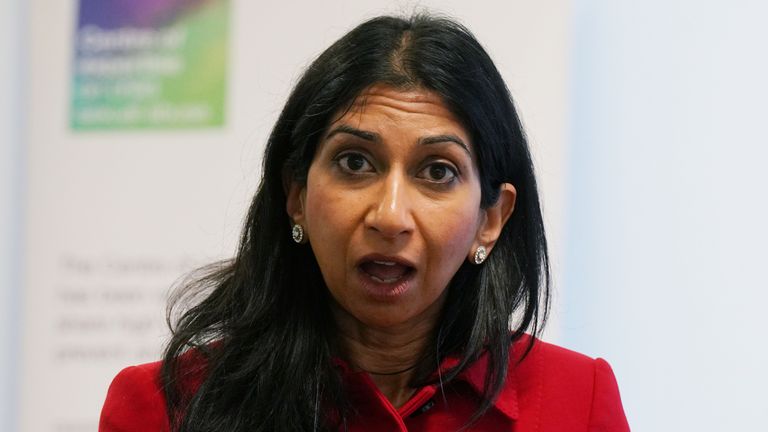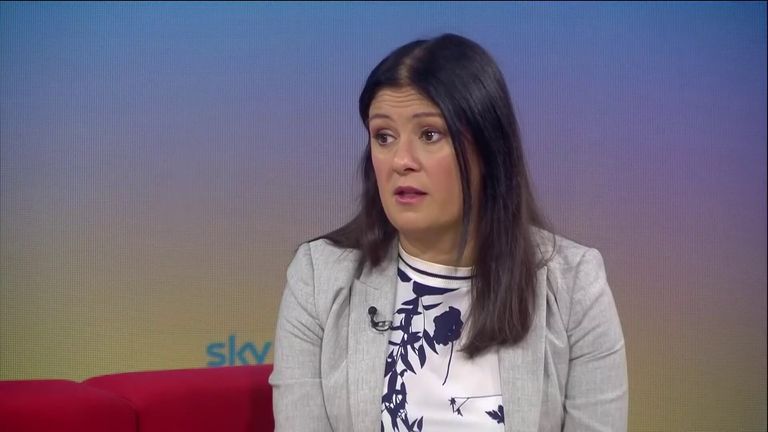International students who come to the UK will no longer be able to bring family with them except under specific circumstances in a government bid to bring immigration down.
International students will no longer be able to bring dependants with them unless they are on postgraduate courses that are currently designated as research programmes.
The package will also remove the ability for international students to switch out of the student route and into work routes before their studies have been completed “to prevent misuse of the visa system”, the government said.
As well as removing this right, there will also be a review of the maintenance requirement for students and dependents and a crackdown on “unscrupulous” education agents “who make use of inappropriate applications to sell immigration, not education”.
The changes will come into effect for students starting their courses from January 2024 in order to allow future international students time to plan ahead.
In the year ending December 2022, 486,000 student visas were issued to applicants – up from 269,000 in 2019.
Last year, the number of student visas issued to dependants stood at 136,000 – an eightfold increase from 2019, when 16,000 were provided.
In a written ministerial statement, Home Secretary Suella Braverman said recent immigration figures had shown an “unexpected rise” in the number of dependants coming to the UK alongside international students.
Ms Braverman said the increase was made after the government made its commitment to lower net migration.
In 2019, when net migration stood at 226,000, the Conservative manifesto committed to making sure “overall numbers come down”.
Ms Braverman said while the government’s strategy around international education “plays an important part in supporting the economy”, it should “not be at the expense of our commitment to the public to lower overall migration”.
“This package strikes the right balance between acting decisively on tackling net migration and protecting the economic benefits that students can bring to the UK,” she said.
“Now is the time for us to make these changes to ensure an impact on net migration as soon as possible. We expect this package to have a tangible impact on net migration. Taken together with the easing of temporary factors, we expect net migration to fall to pre-pandemic levels in the medium term.”
Education Secretary Gillian Keegan said attracting top students “isn’t just good for our universities – it’s essential for our economy and building vital global relationships”.
“But the number of family members being brought to the UK by students has risen significantly,” she added.
“It is right we are taking action to reduce this number while maintaining a commitment to our international education strategy, which continues to enrich the UK’s education sector and make a significant contribution to the wider economy.”
The announcement comes as the government comes under mounting pressure over migration figures – an issue that has reportedly caused splits in the cabinet.
Official statistics due to be published later this week are expected to show that net migration has increased from 504,000 in the 12 months to June 2022 to more than 700,000 in the year to December.
Ms Braverman recently made a speech at the National Conservatism Conference in which she said the UK needed to “get overall immigration numbers down”, adding: “We mustn’t forget how to do things for ourselves.”
But Ms Braverman is reported to have faced pushback in recent weeks from some cabinet colleagues, including Chancellor Jeremy Hunt and Ms Keegan, who are said to have been appealing for more visas for students and workers in certain sectors to boost economic growth and continue to plug the gaps left in the labour market.
The home secretary is also coming under increasing pressure personally over claims she asked civil servants to arrange a private awareness course after she was caught speeding last year – a move critics claim could amount to a breach of the ministerial code.
Raising an urgent question in the House of Commons, Labour’s deputy leader Angela Rayner said there were “serious questions to answer” regarding Ms Braverman, adding: “How many strikes before she’s out?”
Jeremy Quin, paymaster general and minister for the Cabinet Office, said the prime minister was the “ultimate judge” of the standards expected of a minister – and the “appropriate consequences of a breach of those standards”.
He said Mr Sunak “made clear to the House yesterday that he is receiving information on the issues raised” in regards to Ms Braverman.
Responding to the government’s announcement, Jamie Arrowsmith, director of Universities UK International, said the changes were likely to have a “disproportionate impact on women and students from certain countries”.
“We therefore urge the government to work with the sector to limit and monitor the impact on particular groups of students – and on universities, which are already under serious financial pressures.”
And Tim Bradshaw, the chief executive of the Russell Group of universities, said he was concerned the new rules could have a “negative impact” on universities’ plans to diversify their student intakes.
“Global competition for international students is fierce and some of the announcements made today are likely to have a negative impact on universities’ plans to diversify their international student intakes,” he said.
“However, we welcome the government’s recommitment to the graduate route and that students coming to study on postgraduate research programmes will still be able to bring dependants.”
I am an experienced financial analyst & writer who is well known for his ability to foretell market trends as well.




